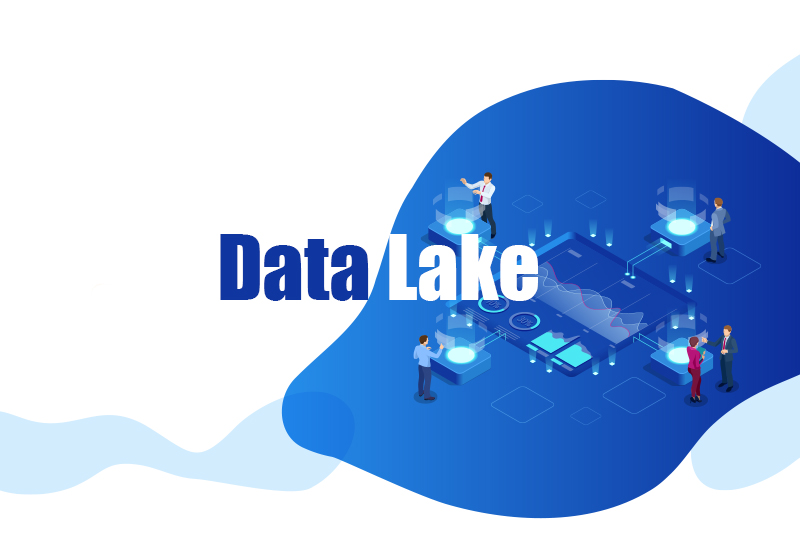An incomprehensible volume of structured and unstructured data is generated every day. While data conversion outsourcing can help businesses process their data, one of the most important decisions that need to be made is where to store all the data they collect. That’s where a data lake comes in. A data lake allows organizations to store multiple collections of varied data in one convenient location.
What is a Data Lake?
According to IBN, a data lake is “a low-cost storage environment, which typically houses petabytes of raw data”. The technologies and methodologies used to implement data lakes have evolved over time. Data lakes are typically built on distributed storage systems, such as Hadoop Distributed File System (HDFS) or cloud-based storage services like Amazon S3 or Azure Blob Storage.
The adoption of data lakes is gaining pace in the field of data management and analytics. The data lakes market is expected to register a CAGR of 24.9% during 2023 – 2028, according to a research report from Modor Intelligence. IBM references a recent Voice of the Enterprise report which found that almost “three quarters (71%) of enterprises are currently using or piloting a data lake environment or plan to do so within the next 12 months, and 53% of respondents are already in deployment or POC.”
Data Lake vs. Data Warehouse
Both data lakes and data warehouses store data, but they are different.
A data warehouse:
- gathers data from various sources and integrates it into a single repository
- stores data in an organized and structured manner, and archives everything in a defined way
- is designed for fast and efficient data retrieval and analysis
can handle large volumes of data, including historical data, to support the growing needs of an organization
When a data warehouse is developed, decisions need to be made as to what data to include and exclude. Data is typically loaded into the data warehouse after a specific use or purpose for the data has been identified.
On the other hand, a data lake stores large volumes of raw, structured, semi-structured, and unstructured data in its native format, such as text, images, videos, sensor data, social media posts, and more. The key features of a data lake include:
- accepts and retains all data from multiple data sources, such as databases, data streams, IoT devices, external APIs, and more
- supports all data types — stores both structured and unstructured data
- holds data in an unstructured way and in its rawest form — it is not processed or analyzed.
- does not require a defined schema to store data
A data lake can be used to store all types of data, regardless of its source, size, speed, and structure. Data retrieval speed is better for data lakes than for data warehouse. A data lake also has lower storage costs due to the number of operations and space required for building the warehouse database.
Why Data Lakes are Important
Data lakes are on the rise. One of the key advantages of a data lake is that it can accommodate diverse data types and handle data at scale, making it suitable for big data analytics, real-time data processing, and data-driven decision making. The data management platform also supports data governance and security to ensure data integrity and compliance. Here are the reasons why data lakes are growing in importance:
- Scalability: Data lakes are flexible and adaptable to changing data requirements. They are designed to handle big data, which is growing rapidly. This scalability allows organizations to store and process data without the need for extensive upfront data modeling or schema design.
- Format flexibility: Data lakes can store data in a variety of formats, such as structured, semi-structured, and unstructured data such as text, images, audio, and video. Organizations can capture and analyze social media posts, customer reviews, sensor data, and other data types, and gain valuable insights for business decision-making.
- Data integration and sharing: By functioning as a centralized data repository, data lakes provide a platform for data sharing and collaboration across different teams or departments within an organization. This can promote data-driven decision-making across the organization.
- Agility: By enabling organizations to ingest data from various sources in real-time or near-real-time, data lakes support faster data integration and analysis. This allows businesses to quickly respond to changing data needs and make informed decisions in a timely manner.
- Data governance: Data lakes enable organizations to implement data governance practices to ensure data quality, integrity, and security. Implementing appropriate access controls will ensure that sensitive or regulated data stays protected and compliant with industry regulations.
- Cost-effective: As they are built on cloud-based storage platforms, data lakes provide cost advantages. Organizations can store large volumes of data without the need for expensive upfront investments in hardware and infrastructure and can scale up and down easily.
- Data exploration and analysis: Data scientists, analysts, and business users can use data lakes to explore and analyze data in its raw or near-raw form. Scientists can apply advanced analytics, machine learning, and artificial intelligence (AI) on diverse data sets to identify new patterns and get insights.
Managing their data efficiently and extracting value from it are some of the most important responsibilities of all businesses. When it comes to building a data-driven organization, partnering with an experienced provider of business process outsourcing services is the best solution. BPO companies leverage advanced technologies and skilled manpower to assist businesses in processing and analyzing large volumes of data. This helps businesses gain insights and make data-driven decisions, leading to improved operational efficiency, optimized workflows, and better customer experiences.
We can help your business become a data-driven organization and unlock the full potential of your data.




